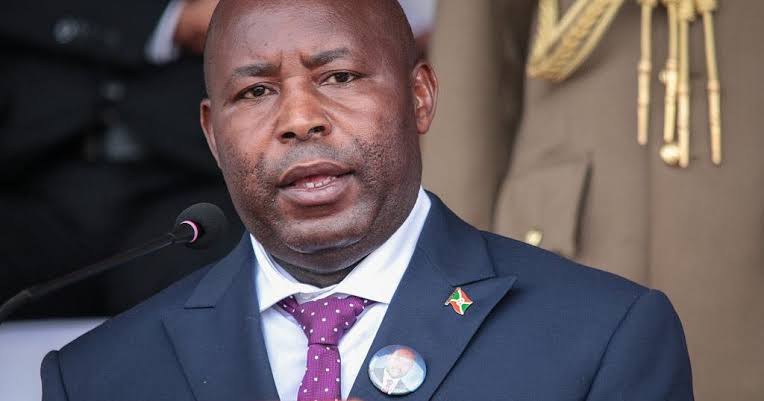Burundi’s President Évariste Ndayishimiye has accused Rwanda of planning an attack on his country and supporting rebel groups to undermine its stability.
In a BBC interview, he claimed to have “credible intelligence” confirming Rwanda’s intentions and drew comparisons between Rwanda’s alleged actions in Burundi and its role in the Democratic Republic of Congo (DRC).
Rwanda dismissed the allegations as “surprising,” emphasizing that both countries had been working together on border security. However, tensions remain high, with the Burundi-Rwanda border closed for more than a year.
Despite reports from the United Nations implicating Rwanda in supporting the M23 rebels, Kigali has consistently denied any involvement. M23 fighters, backed by Rwandan troops, have seized large areas in eastern DRC.
Similarly, Rwanda has rejected claims of supporting the Red Tabara rebels, whom President Ndayishimiye described as a proxy force used to destabilize Burundi.
“Rwanda claims this is an internal issue, but we know they are behind it. We will not allow Burundians to suffer the same fate as the Congolese,” Ndayishimiye said, adding that his country seeks a peaceful resolution through dialogue rather than conflict.
The Burundian leader also accused Rwanda of orchestrating the 2015 coup attempt in Burundi. According to him, Rwanda trained and armed the coup plotters before they sought refuge across the border.
He called on Rwanda to extradite them as part of a commitment to regional peace agreements.
“If Rwanda hands them over to face justice, this issue will be resolved,” he stated.
Meanwhile, the conflict in eastern DRC continues to escalate, with multiple armed groups fighting for control of the region’s vast mineral resources.
Ndayishimiye blamed external forces for fueling the crisis, asserting that economic interests are driving the conflict rather than the well-being of the Congolese people.
“The war in DRC is about minerals, not people. Foreign powers want the chaos to continue so they can exploit the resources,” he said.
Ndayishimiye also questioned Rwanda’s justification for military involvement in DRC, arguing that the Congolese population, rather than the Rwandan rebel group FDLR, has borne the brunt of the violence.
“Rwanda says it’s targeting the FDLR, but it’s the Congolese who are dying. Why are they killing Congolese civilians?” he asked.
The humanitarian crisis worsens as thousands of Congolese refugees seek safety in Burundi. Some have taken perilous journeys across the Rusizi River, despite the risks of drowning.
While refugees claim the Burundi-DRC border is closed, Ndayishimiye dismissed these assertions, stating that they are free to return home.
“If they came here, they can go back. We are not stopping anyone,” he said, adding that Burundi is doing its best to accommodate them with limited resources.
Ndayishimiye stressed that ending the conflict requires a stronger international military presence in DRC.
He also insisted that Burundian troops would not withdraw until the country’s security was guaranteed.
Earlier this month, Southern African leaders announced plans to withdraw their troops from DRC, following heavy casualties in battles against the M23 rebels.


